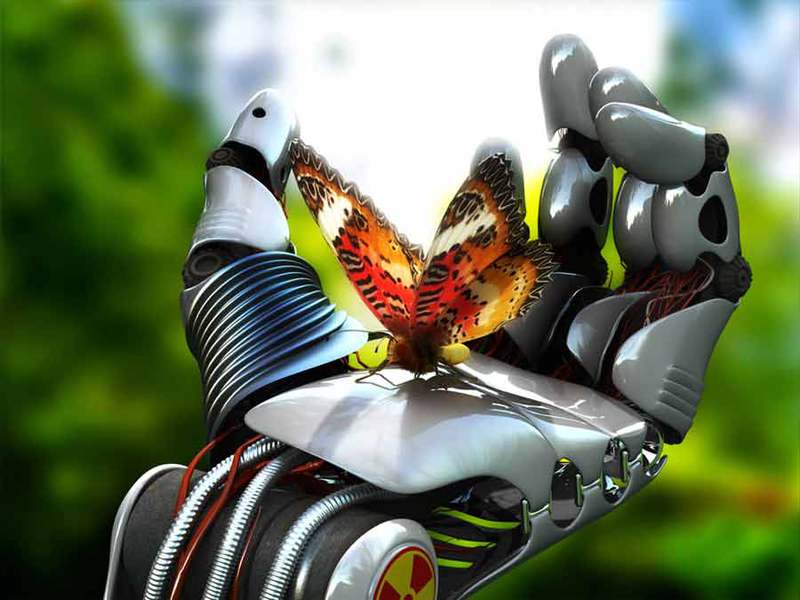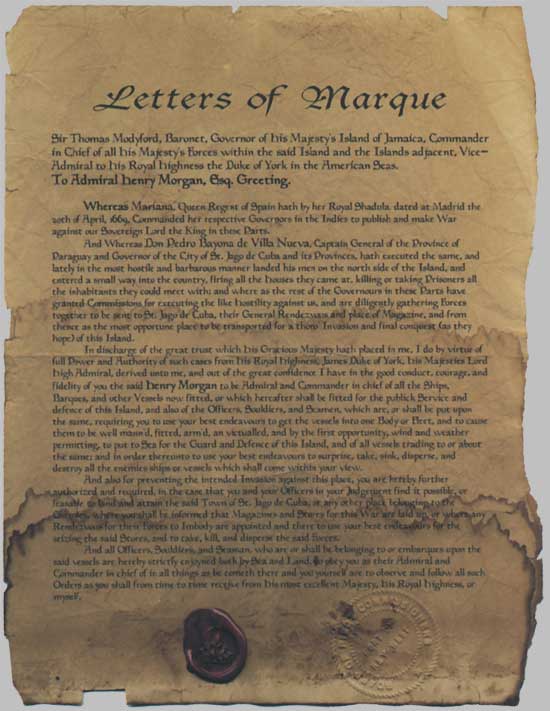Monopolies, patents, IT and the future

Good all the time of day!
Quite often there are collisions of opinions about the "copyright", but obviously the debaters do not understand where it came from, how it developed and what will happen to it further.
This article does not claim to be complete and aims to simply describe the main systemic patterns.
')
I will not describe here the distant times of the 13th century and the history of the birth of the first rights in the Republic of Venice. I'll start with what is closer and clearer to us.
Past
So, in the 15th century, in England, the world's first "industrial" revolution happened. The industrial revolution has increased people's labor productivity many times, increased the quantity of goods produced, and created a huge number of different kinds of enterprises that have been fiercely competing with each other in everything - including ideas, solutions, technologies and inventions. Theft of inventions was common and natural, and concealing them was the most important task. It should be noted, since England was and is an absolute monarchy, then the owners of enterprises were usually the richest and most influential people from the highest, aristocratic class or the king himself.
The theft of "inventions" had a very bad effect on the relations of the owners of various enterprises among themselves and led to serious internal discord. This had a bad effect on the stability and power of the king, as well as on the profits of enterprises. In order to avoid all these problems, a code of laws known to us as a “patent law” was basically developed. The meaning of these laws was similar to modern: for some time (then 14 years), the patent owner received a monopoly right to use the invention or a specific activity, and the king received in return - the development of state industry and taxes.
Sample English patent: Henry Morgan's privatization certificate

The present
Since then, many centuries have passed and patent law has developed and formed into a significant bureaucratic apparatus with powerful tools - patent bases, attorneys, experts, interstate agreements and other details. By the 20th century, the patent system had generally reached the pinnacle of its development. But in the 20th century some fundamental changes took place - the progress of electronics, IT and related areas created a huge amount of non-material things - which, out of habit, tried to “fit” into the framework of the existing patent system.
The important point is always up to the 20th century, certain inventions, goods, books, etc. had some kind of material carrier. That is, by purchasing “something” you received a physical copy of it and could dispose of it as you please, at your own discretion - throw out, sell, donate, etc. This copy was yours and only your property. But the duplication of this thing was not at all a simple task that provided a monopoly and this is a natural limitation of the physical world.
But with non-material things that suddenly “broke away” from material carriers, a “case” came out - it turned out that the patent system could not cope with their unique natural properties - since for many centuries of development it was based only on the properties of measurable, material, physical of things. And with the natural properties of non-material things (transportation costs nothing, in any volumes and at any distances, as well as changing, dividing, merging, transforming) it cannot do anything.
And it seemed from the consumer and society that such unique properties of non-material things are their great dignity, but from someone else this is a serious problem.
To make it clearer, I will explain the simple principles of the capitalist system - in any market with sufficient development, there is always a “monopoly” dictating to both the producer and the consumer all prices in this market . Monopoly is not necessarily one company - most often it is a group of very large companies controlling the “lion” market share in a public or non-public agreement.
In some cases, the state is trying to somehow fight against monopolies, but their existence is only a consequence of the natural principles of the capitalist system, and therefore the struggle against them is the struggle against capitalism itself (therefore, the struggle against monopolies is always sluggish and without any special success).
So, by the end of the 20th century, “monopolies” had historically formed in all the less large “markets” and no one — neither the author / inventor, nor the consumer can attend it without the participation of the existing monopoly — as an intermediary — publisher. And this monopoly dictates all prices and purchases and sales. As an example: in the music industry, the author receives from 0.5% to 6% of the sales value of a CD. The rest gets - "monopoly". Turnovers in the developed markets probably do not need to be explained - many billions of which only small percentages are deductions to the authors.
The modern development of information technologies, the phenomenon of which has never been before in the history of Mankind - information in a huge amount is available to everyone who wants to use / produce / share it. And this phenomenon is gradually changing the real world - people have opportunities that have never been before. For example - any Internet user is now actually a “scholar” with a huge amount of available information obtained by pressing a few buttons (this certainly does not apply to the factor of understanding ). And all this is provided by the free distribution of user-created information - as a fundamental principle of the development of the Internet.
The first to feel the monopoly changes were “publishers”, when the books / music / videos belonging to them began to rapidly lose their circulation because they listened (viewed / read) on the screen or printed out on a printer much cheaper, faster, more convenient and easier than going to the store or expect delivery. Non-material things are easily replicated and moved in any volumes over any distances without any significant material costs and loss of their qualities.
Realizing that they no longer needed monopolies actually started a war with progress - attempts to limit the free distribution of information by any means. To understand the cost of this struggle - about half the cost of a modern TV is the cost of patents and equipment of encryption and information security systems.
So at the beginning of the 21st century, the progress of technology and IT in combination with the natural properties of non-material things made the presence of monopolies in the markets virtually meaningless. The modern fight against “piracy” for “copyright” is in essence - this is the struggle of these monopolies for their own survival and their position and profits that disappear in the wake of progress.
It is necessary to understand - in the historical perspective, it is an absolutely useless event, since progress cannot be reversed just like that. As one wise saying goes, “when a strong wind starts blowing, a fool builds a wall, and a smart one builds a mill.” And some smart people have already begun to build new monopolies on the properties of precisely non-material things. Other established markets for material production still feel little the influence of all these phenomena, but very soon everything will change very much.
Future
It is very difficult to say what the future will be, but something can be predicted for the development of similar modern “services” - for example, following the example of the development of computer printing. Printer for half a century have made a huge development and have actually "buried" the industry publishing paper books. To be more precise, the publishing house of exclusive and gift books in minimal volumes will probably remain, and it will be about the same as now “horseback riding on a carriage in the park”. In principle, a modern 3D printer is potentially the “death” of most industry. And taking into account the development of anthropomorphic robotics, the issue and the rest of the industry in general is already predetermined.
The development of IT in the near future will lead to the gradual elimination of most of the modern industry and customer services. Accordingly, the “patent law” and “copyright” will lose any practical sense which is already quite dubious. Absolutely anyone, either himself or in the company, will be able to create \ change \ improve certain new “products” (just like now distributions on torrent servers), as well as find the “products” necessary by themselves and get them away from the participation of modern monopolies .
It should be noted that there will also be no “economy” in the modern sense.
Most of the "broken copies" is only in the question - how will the money be earned when the copyright disappears?
The first image of the financing system has long been implemented in practice in the modern GNU \ OpenSource movement. Developers of the new will become much better and better, because talents - those who will be able to come up with something outstanding and new, will receive from society one way or another “stimulating” with resources for further development, similar to modern promotion free \ share-ware and opensource .
Those who turn out to be incapable of high-quality creativity of the new will remain without such “stimulation”.
Particularly outstanding developers will be very popular and, accordingly, will be able to quite successfully convert their popularity into some completely tangible resources. Surely many will work in teams and their leaders will receive a significant portion of all resources for creating new monopolies. After all, the victory over the "copyright" will be followed by the next quite obvious stage of development - the struggle for information processing tools .
Conclusion
We live in an amazing time and many things that seem unshakable to us now will very soon cease to be so. One of them is the disappearance of “patent law” and “copyright”.
The dying off of these rudiments of the industrial age will not be easy at all, since modern monopolies will fight for their position and future to the last. Therefore, I did not describe the negative aspects of this here, but it must be understood - they will.
Nevertheless, it is the development of IT that will destroy copyright.
Ps. Below are links to some Western theoretical materials on anti-copyright, in English, if someone translates Habralya people, I think many in this topic will be very interesting for understanding the thoughts of Western IT people.
praxeology.net
againstmonopoly.org
Thanks for attention.
Source: https://habr.com/ru/post/133431/
All Articles